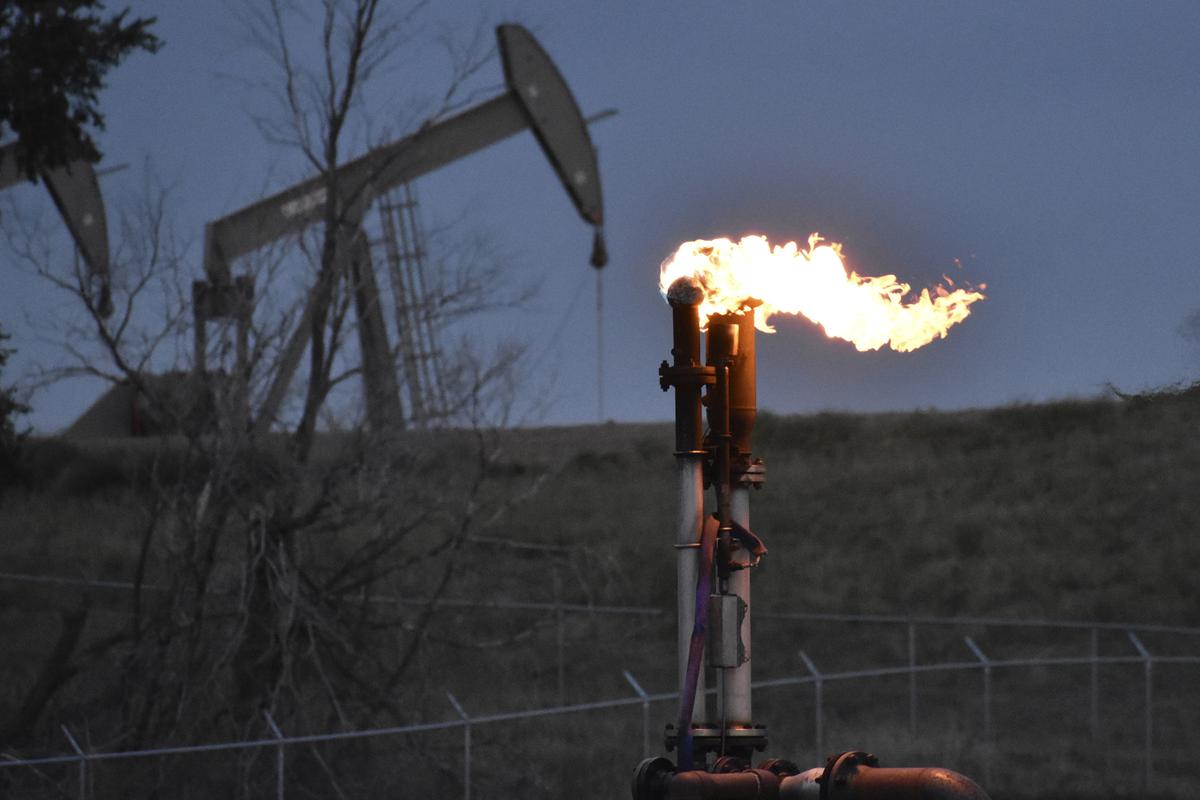Oil prices slide on concerns over China’s demand

A flare to burn methane from oil production is seen on a well pad near Watford City, North Dakota, Aug. 26, 2021.
| Photo Credit: AP
Oil prices dropped in early trade on Tuesday, weighed down by concerns about slowing fuel demand in top crude importer China amid strict COVID-19 curbs.
Brent crude futures fell 45 cents, or 0.5%, to trade at $82.74 a barrel at 0113 GMT. U.S. West Texas Intermediate (WTI) crude futures dropped 51 cents, or 0.7%, to $76.73 a barrel.
Brent settled down 0.5% the previous day, having slumped more than 3% to $80.61 earlier in the session to its lowest since Jan. 4. WTI settled up 1.3% on Monday, after earlier touching its lowest since December 2021.
“Bearish moods toward oil prices are spreading in Asia due to concerns about a decline in China’s demand while the rare protests over the weekend also raised fears over the impact on the Chinese economy,” said Toshitaka Tazawa, an analyst at Fujitomi Securities Co Ltd.
The rare street protests that erupted in cities across China over the weekend were a vote against President Xi Jinping’s zero-COVID policy and the strongest public defiance during his political career, China analysts said. Beijing has stuck with the zero-COVID policy even as much of the world has lifted most restrictions.
Investors also remained cautious ahead of a key meeting of the Organization of the Petroleum Exporting Countries (OPEC) and allies including Russia, known as OPEC+, on Dec. 4. Analysts at Eurasia Group suggested in a note on Monday that weakened demand out of China could spur OPEC+ to cut output.
“Losses were limited (on Tuesday) as some investors expect that OPEC and its allies may agree on a production cut in their next meeting to support oil prices,” said Fujitomi Securities analyst Tazawa.
Markets are also assessing the impact of an upcoming Western price cap on Russian oil.
Group of Seven (G7) and European Union diplomats have been discussing a cap of between $65 and $70 a barrel, with the aim of limiting revenue to fund Moscow’s military offensive in Ukraine without disrupting global oil markets. Russia calls its actions in Ukraine “a special operation”.
But EU governments failed to agree on Monday on the cap, with Poland insisting the cap should be set lower than proposed by the G7, diplomats said.
The price cap is due to come into effect on Dec. 5, when an EU ban on Russian crude also takes effect.
For all the latest business News Click Here

